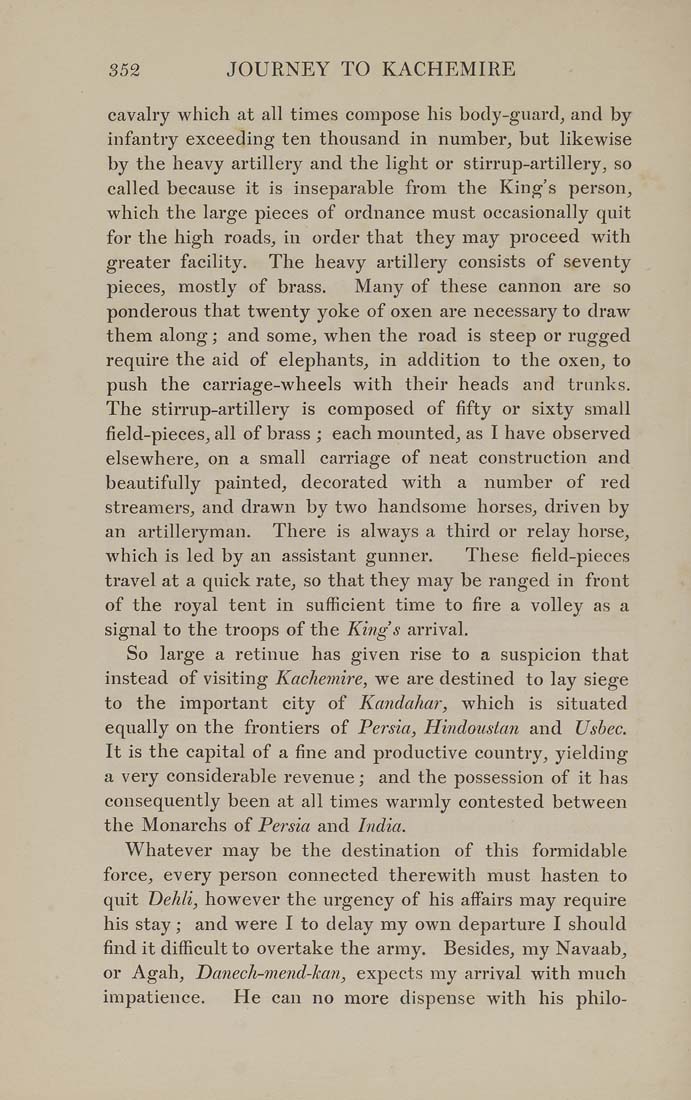352 JOURNEY TO KACHEMIRE
cavalry which at all times compose his body-guard, and by
infantry exceeding ten thousand in number, but likewise
by the heavy artillery and the light or stirrup-artillery, so
called because it is inseparable from the King's person,
which the large pieces of ordnance must occasionally quit
for the high roads, in order that they may proceed with
greater facility. The heavy artillery consists of seventy
pieces, mostly of brass. Many of these cannon are so
ponderous that twenty yoke of oxen are necessary to draw
them along; and some, when the road is steep or rugged
require the aid of elephants, in addition to the oxen, to
push the carriage-wheels with their heads and trunks.
The stirrup-artillery is composed of fifty or sixty small
field-pieces, all of brass ; each mounted, as I have observed
elsewhere, on a small carriage of neat construction and
beautifully painted, decorated with a number of red
streamers, and drawn by two handsome horses, driven by
an artilleryman. There is always a third or relay horse,
which is led by an assistant gunner. These field-pieces
travel at a quick rate, so that they may be ranged in front
of the royal tent in sufficient time to fire a volley as a
signal to the troops of the King's arrival.
So large a retinue has given rise to a suspicion that
instead of visiting Kachemire, we are destined to lay siege
to the important city of Kandahar, which is situated
equally on the frontiers of Persia, Hindomstan and Usbec.
It is the capital of a fine and productive country, yielding
a very considerable revenue; and the possession of it has
consequently been at all times warmly contested between
the Monarchs of Persia and India.
Whatever may be the destination of this formidable
force, every person connected therewith must hasten to
quit Dehli, however the urgency of his affairs may require
his stay; and were I to delay my own departure I should
find it difficult to overtake the army. Besides, my Navaab,
or Agah, Danech-mend-kan, expects my arrival with much
impatience. He can no more dispense with his philo-
|








